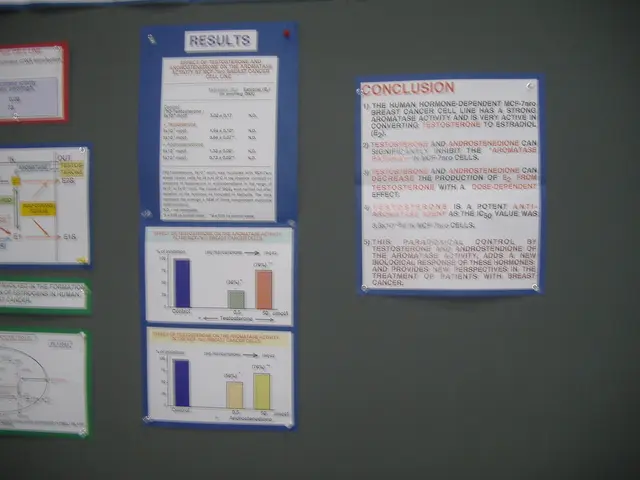Bipolar Disorder Manias: Recognizing Symptoms, Causes, and Management Strategies
In the complex world of mental health, understanding and managing mania in bipolar disorder is crucial for those affected and their loved ones. This article aims to shed light on the subject, providing insights into the symptoms, triggers, treatments, and more.
Mania, a period of high energy, can occur in people with bipolar disorder, characterised by euphoria or agitation, decreased sleep, rapid speech, and distorted beliefs. It can take two forms: hypomania and acute mania. Hypomania is less severe and usually does not cause major disruptions, while acute mania is more severe and significantly affects a person's ability to function.
Hypomania, common in Bipolar II disorder, lasts at least four days and shares some symptoms with mania, such as elevated mood, increased energy, and decreased need for sleep. However, it is not severe enough to cause marked impairment or require hospitalization. On the other hand, Mania in Bipolar I disorder, also known as manic episodes, involves a distinctly elevated, expansive, or irritable mood lasting at least seven days or requiring hospitalization due to severity. Symptoms may include inflated self-confidence, decreased need for sleep, racing thoughts, distractibility, increased goal-directed activity, risky behaviors, paranoia, delusions, and sometimes psychosis. These symptoms significantly impair daily functioning, often causing marked disruption in work, school, social, and family life, and frequently necessitate hospitalization.
If you or someone you know is experiencing mania or suspects they may have bipolar disorder, it is essential to seek medical attention as soon as possible. This is especially crucial in the case of acute mania, which can be disruptive and potentially dangerous.
Self-care strategies can also help manage mania. These include taking medications as prescribed, reducing stress, avoiding alcohol or drugs, keeping a consistent sleep routine, eating a nutritious diet, exercising regularly, keeping a mood journal, checking with a doctor before taking new supplements or medications, and updating doctors about any changes in symptoms or side effects. Education of family and friends can help them understand the symptoms and what to do if they arise.
Treatment for mania in bipolar disorder typically involves a combination of talk therapy and medications. Mood stabilizers, antipsychotics, and antidepressants are classes of drugs that doctors may prescribe. Finding the medication or combination of medications that works best may take some time. Talk therapy can help people accept their condition, learn new skills to manage stress, and recognise the warning signs of an incoming episode.
In summary, the severity and impact of mania progress from hypomania—mild and less impairing—to full mania, which can severely disrupt or incapacitate a person's ability to function. It is essential to seek help, practice self-care, and educate oneself and others about the condition to manage mania effectively.
Remember, if you or someone you know is in crisis and considering suicide or self-harm, please seek support from the 988 Lifeline, Crisis Text Line, Befrienders Worldwide, or local emergency services. These resources are available to provide help and support in times of need.
[1] American Psychiatric Association. (2013). Diagnostic and Statistical Manual of Mental Disorders (5th ed.). Arlington, VA: American Psychiatric Publishing. [2] National Institute of Mental Health. (2021). Bipolar Disorder. Retrieved from https://www.nimh.nih.gov/health/topics/bipolar-disorder/index.shtml [3] National Institute for Health and Care Excellence. (2014). Bipolar disorder: assessment and management. Clinical Guideline 185. Retrieved from https://www.nice.org.uk/guidance/cg185 [4] National Institute for Health and Care Excellence. (2014). Bipolar disorder: the management of mania. Clinical Guideline 186. Retrieved from https://www.nice.org.uk/guidance/cg186 [5] National Institute for Health and Care Excellence. (2014). Bipolar disorder: the management of depression. Clinical Guideline 187. Retrieved from https://www.nice.org.uk/guidance/cg187
Read also:
- Trump's SNAP reductions and New York City Council's grocery delivery legislation: Problems for city residents highlighted
- Reducing dental expenses for elderlies in Sweden: Over 50% cut in charges for pensioners by the government
- Forty-year-old diet: A list of meal choices to savor
- Exiled Life's Conundrum: A Blend of Liberation, Disillusionment, and Distress







